FEBS Education profile: Gül Güner Akdogan

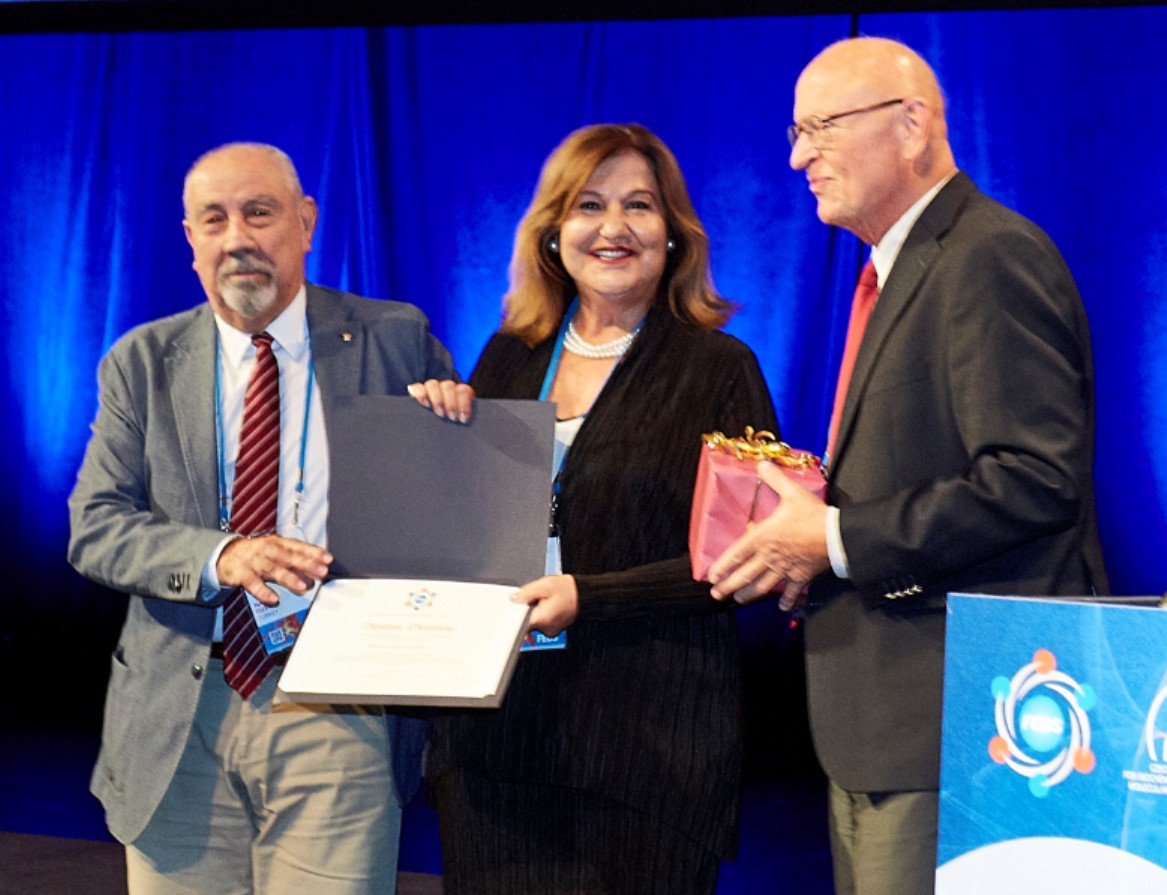
Akdoğan at the 43rd FEBS Congress by FEBS Secretary General
Václav Pačes (right) and FEBS Chair 2018 Nazmi Özer (left).
Gül Güner Akdoğan has reached the end of a third and final term as Chair of the FEBS Education Committee, a group within FEBS tasked with promoting education of the highest quality in Biochemistry and Molecular Biology in Europe at undergraduate and postgraduate levels. Under her leadership over the past ten years, the Committee developed a range of interesting approaches to achieve this aim, including organizing or acting as instructors for multiple education workshops and symposia across Europe. In recognition of her outstanding service to FEBS, Gül was awarded the FEBS Diplôme d’honneur during the opening ceremony of the 43rd FEBS Congress in Prague in July 2018. In a farewell interview below, Gül shares some history and highlights.
How did you get involved with FEBS Education work?
Back in the year 2000, at a time when I was working as the Chair of the Education Group of the Turkish Biochemical Society, a letter was received from Prof. Jean Wallach (France), the founding Chair of the FEBS Working Group on Teaching Biochemistry, inviting a member from our Society to join this Group. My name was sent… I was truly amazed. This is how it all started! I should add that the Turkish Biochemical Society had already hosted a series of excellent IUBMB Education Workshops back in the 1990s, organized by Prof. Frank Vella (Canada; Chair of the IUBMB Education Committee at the time), thus creating awareness of the significance of education in biochemistry.
Later, when this Working Group was converted into the FEBS Education Committee, founded by the late Prof. Ed Wood (UK) in 2006, I was elected as an ordinary member of the Committee. Unfortunately, Ed sadly passed away in 2008 and I was asked by Prof. Israel Pecht (FEBS Secretary General at the time) to take over: for one year I served as the 'Acting Chair'. Then, I was elected as Chair by FEBS Council in 2009 in Prague for a three-year term, re-elected for the second time in 2012 in Sevilla and for a third time in 2015 in Berlin – so, I served as Chair of the Committee for ten years.
What led to your interest in teaching and training in the molecular life sciences?
Firstly: Why teaching and training? I have always been attracted by the beauty of teaching and training young scientists. Young scientists are the future of science. In my medical school at Dokuz Eylül University, Izmir, Turkey, we succeeded in an education reform to change our classical medical curriculum into a completely problem-based learning perspective, back in the 1990s! This was a milestone in my educational career.
Secondly: Why Molecular Life Sciences? During my education in Turkey and abroad, I was deeply interested in the life sciences and specifically in disciplines with a great potential for 'progress'. In fact, I was the first holder of a BSc in Biochemistry in Turkey (with a 'Diplome de Biochimie' from Geneva University, Switzerland).
Tell us about a few highlights of the work of the FEBS Education Committee while you have been at the helm
I can list the highlights of our Committee’s achievements (2008–2018) as the following:
- Workshops on Education (28 Workshops in 20 different countries): since 2008 these workshops allowed for collaboration between FEBS and its Constituent Societies in promoting education and training across the FEBS area at a local level.
- Evolution of the education activities at FEBS Congresses to include a variety of formats (Symposia, Workshops, Poster sessions, etc.) and themes (an array of topics for educators as well as for young scientists).
- Inauguration of the FEBS Education Ambassadors’ network (involving 32 Constituent Societies). One of the key aims is defining key knowledge and skills for molecular life science graduates.
- Establishment of a FEBS Education Platform website and contributions to the newly established FEBS Network.
- Initiation of the Education Section of FEBS Open Bio (with thanks to the FEBS Publications Committee and journal).
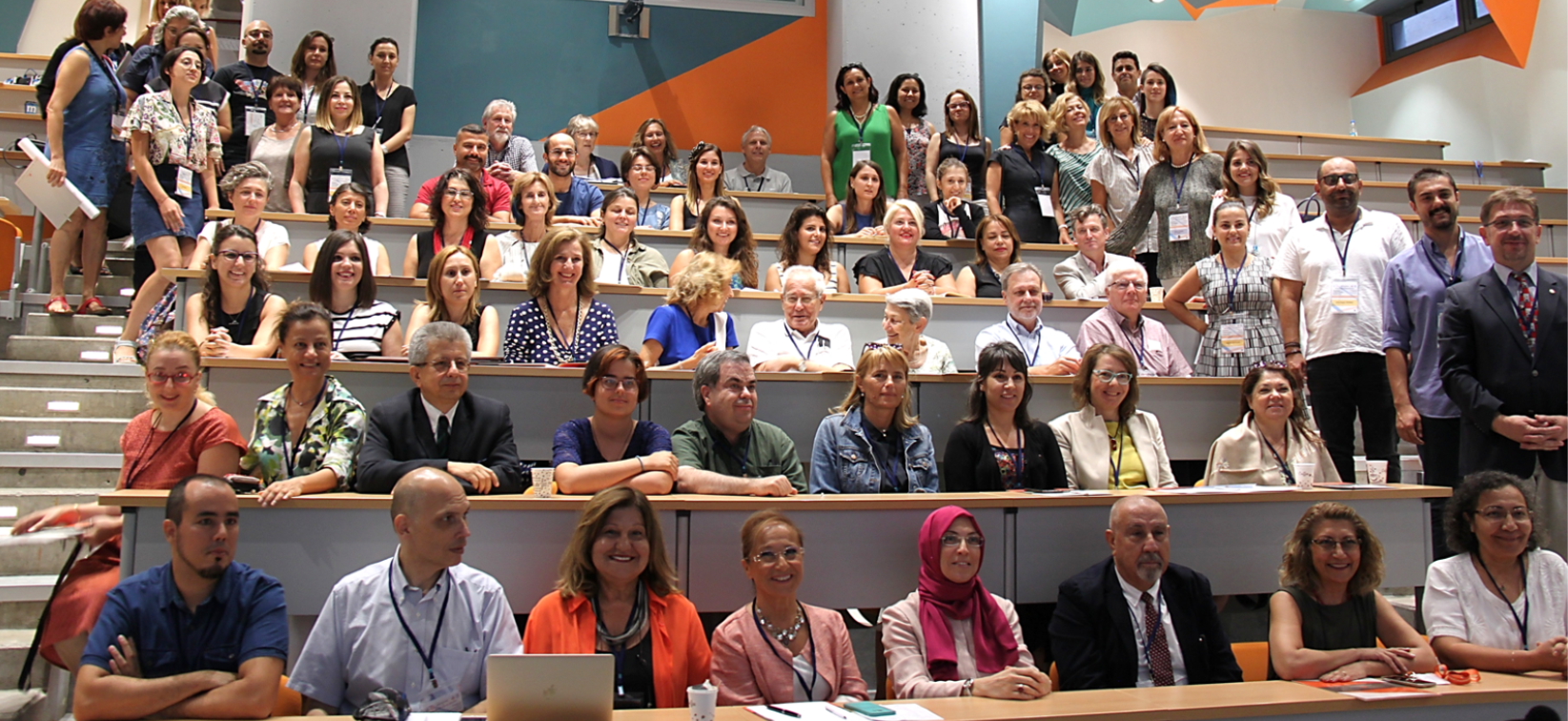
Have there been any particular challenges?
I have to admit that our Committee has been especially fortunate to have continuous support. However, one challenge was a reduction in budget at a certain time, applied to all FEBS Committees. At the Education Committee, we converted this disadvantage to an advantage by collaborating with other FEBS Committees as well as with other international bodies like IUBMB and also FEBS Constituent Societies, thus sharing the expenses.
How have you balanced interest/concerns in education among the different Societies and research communities across the FEBS area through the FEBS Education Committee's work?
All our activities, and particularly the FEBS Education Ambassadors’ network, serve this purpose. This network encompasses Societies from Western and Eastern Europe, sharing concerns, interests, expertise and friendships. Each year we meet in person for a splendid Ambassadors’ meeting hosted by one of the Constituent Societies, and throughout the year we communicate using our electronic network.
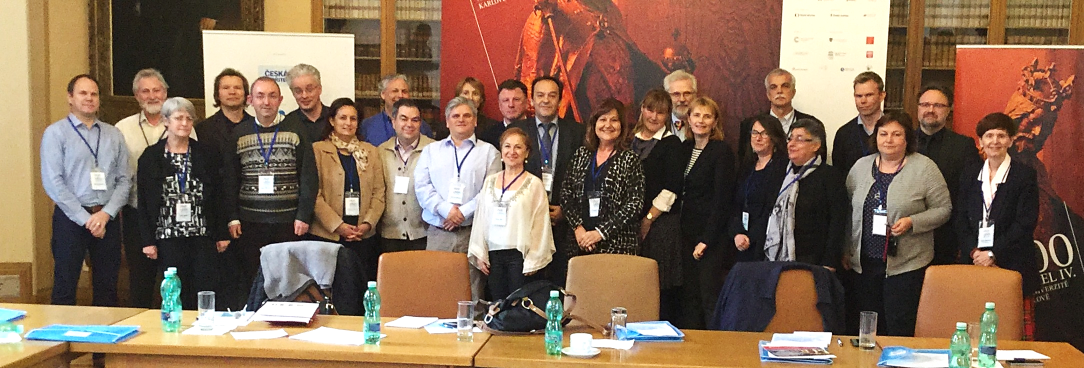
What do you think have been the biggest changes in molecular life sciences university teaching over the past ten years?
The change from a more traditional type of teaching to student-centred learning; the use of novel education methods (problem-based learning, team-based learning, etc.) and electronic educational resources (E-biolabs, FEBS Network, etc); more intensive collaborations, mobility…
What do you see as the main challenge in molecular life sciences university teaching and training currently?
The European funds are focused on supporting research and somehow university teaching and training holds a lower position. However, we need good teachers to train good scientists.
The FEBS Education Committee not only sets FEBS' education strategy, but the members play active roles in delivering projects. Would you like to share some tips for successful committee functioning?
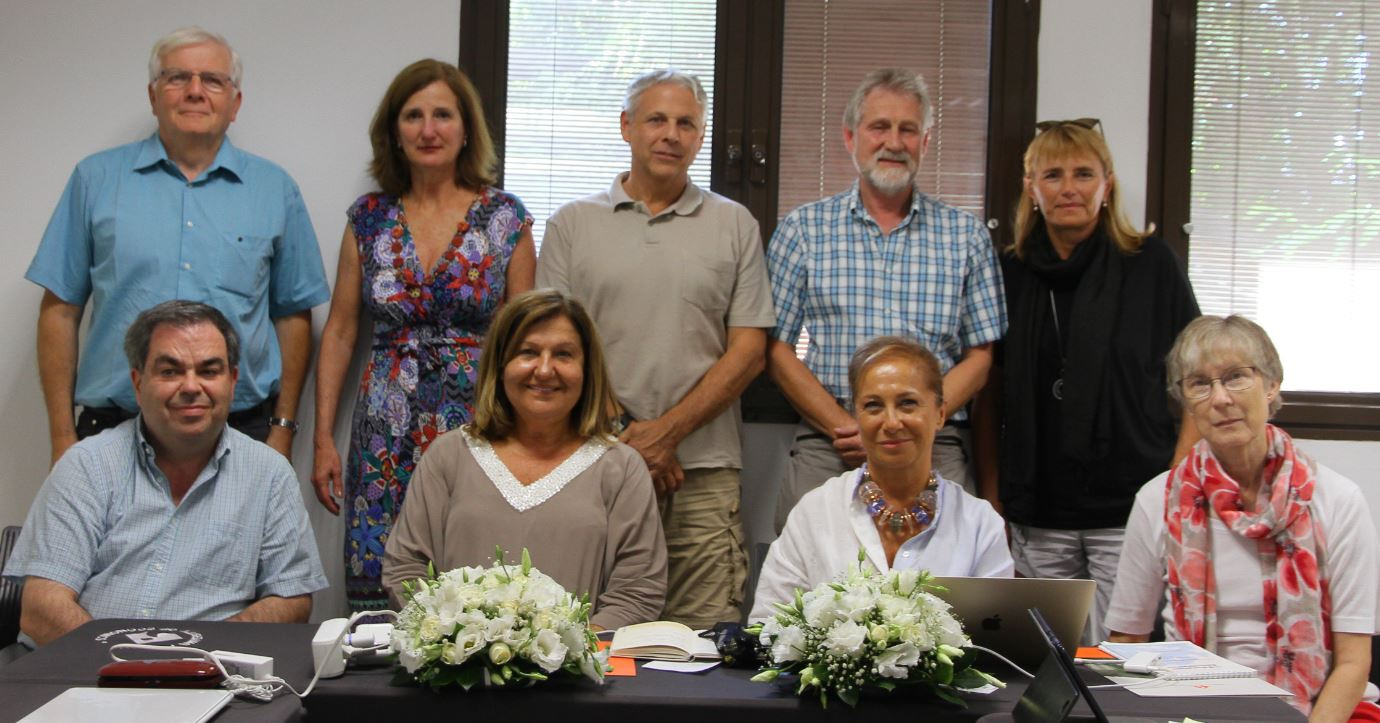
Yes, FEBS Education Committee does both! This is also why there is always great interest to be elected on the Committee. The expertise of each Committee member should be efficiently exploited, with a good atmosphere of sharing and collegiality.
What do you like best about teaching/training?
Interacting effectively with young students and young scientists. With the mission of the education of young scientists for the future, it gives me the greatest pleasure and feeling of fulfilment to receive positive, encouraging feedback from them. This has often been the case in Turkey, in the USA during my visiting professorship, as well as in Western and Eastern Europe, on the occasion of FEBS Workshops dedicated for training young scientists.
What have your learned while in post?
Not only have I had the opportunity to develop my scientific/educational infrastructure, but I have deeply enhanced my knowledge and experience about the history and social aspects of European culture, which have always impressed me. I feel enriched.
What will you miss about your role?
I will miss mostly interaction with my colleagues, many of whom became my friends over the years. I take this opportunity to present my heartfelt thanks to all my colleagues/friends, past and present, who, as members, co-opted members or as ex-officio members have contributed to making FEBS Education Committee grow (Keith Elliott, Jason Perret, Peter Ott, Karmela Barisic, Costas Drainas, Miguel Castanho, Tomas Zima, Angel Herraez, Wolfgang Nellen, Frank Michelangeli, Winnie Eskild, Jean-Luc Souciet, Laszlo Dux, Ferhan Sagin, Luciane Vieira de Mello, Beata Vertessy, Jerka Dumic…). Special mention goes to Dr Keith Elliott with whom I worked for FEBS education since the year 2000! I thank the Executive Committee members of FEBS, particularly Prof. Israel Pecht, for his great vision and continuous, friendly guidance. I have always thought he was a mentor to me, after Ed Wood. I thank my colleagues from the FEBS Constituent Societies who have greatly supported our initiatives. I have enjoyed working and learned a lot and I feel deep appreciation to every one of them. I have also always remembered the unique and valuable contributions of the late Profs Ed Wood, Costas Drainas, Matthias Sprinzl, Jacques Henry Weil and Georgio Semenza.
What's next?
I will continue working in my university (Izmir University of Economics, School of Medicine) which is in the process of inauguration, continue working for European scientific platforms, continue being part of the FEBS family at a different level… I am grateful and honoured to receive the FEBS Diplôme d’Honneur this year. Though presently I am very busy, I dream of spending more time with my 5-year old granddaughter Nazli.
Finally, it gives me a great pleasure to share with you my prevision that FEBS Education Committee will continue striving forward under the leadership of its new Chair, Prof. Ferhan Sağın, with the support of all its expert and dedicated members.
Biosketch
Gül Güner Akdoğan is Professor at the Department of Biochemistry, School of Medicine, Izmir University of Economics, Izmir, Turkey. She obtained her BSc and MSc from Geneva University, Switzerland, and after a PhD at Istanbul University joined the biochemistry faculty there before moving to Izmir (Dokuz Eylül) University. Her research field was the extracellular matrix in health and disease. In Izmir, she founded and directed the Central Research Laboratory of Dokuz Eylul Medical School, and it was also here she became increasingly involved in promoting postgraduate education, as Director of the Graduate School of Health Sciences responsible for the coordination and management of MSc and PhD degrees. She served as the coordinator of Dokuz Eylül University on the Doctoral Council of EUA, and on the Executive Committee of ORPHEUS (Organisation for PhD education for biomedicine and health sciences in the European system) 2010–2016, including as the General Secretary 2014–2016. She has also served on the editorial board of education journals. She joined the FEBS Working Group on Teaching Biochemistry in 2001. In 2008 she was elected to be a member of the new FEBS Education Committee, and has been the Committee’s Chair from 2009 to 2018.
For a fuller biography, please see Gül Güner Akdoğan's institute webpage at http://people.ieu.edu.tr/en/gulakdogan
Top image: lapencia/stock.adobe.com
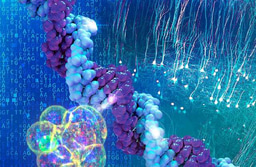
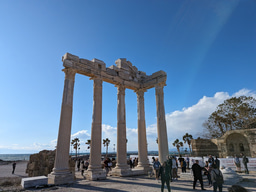

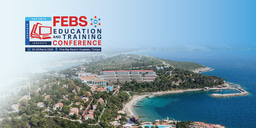
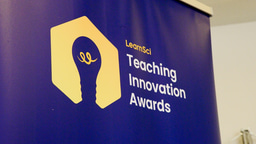
Join the FEBS Network today
Joining the FEBS Network’s molecular life sciences community enables you to access special content on the site, present your profile, 'follow' contributors, 'comment' on and 'like' content, post your own content, and set up a tailored email digest for updates.